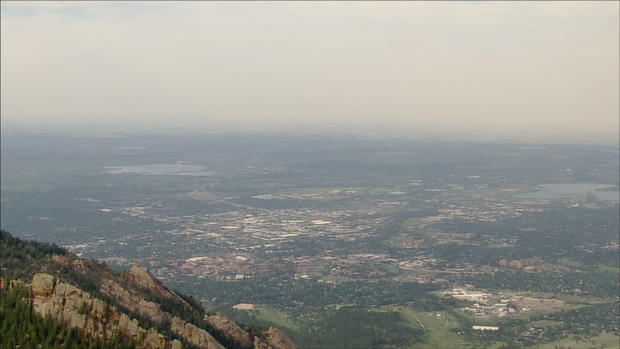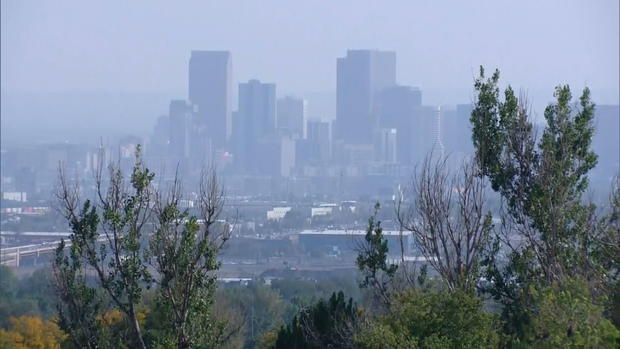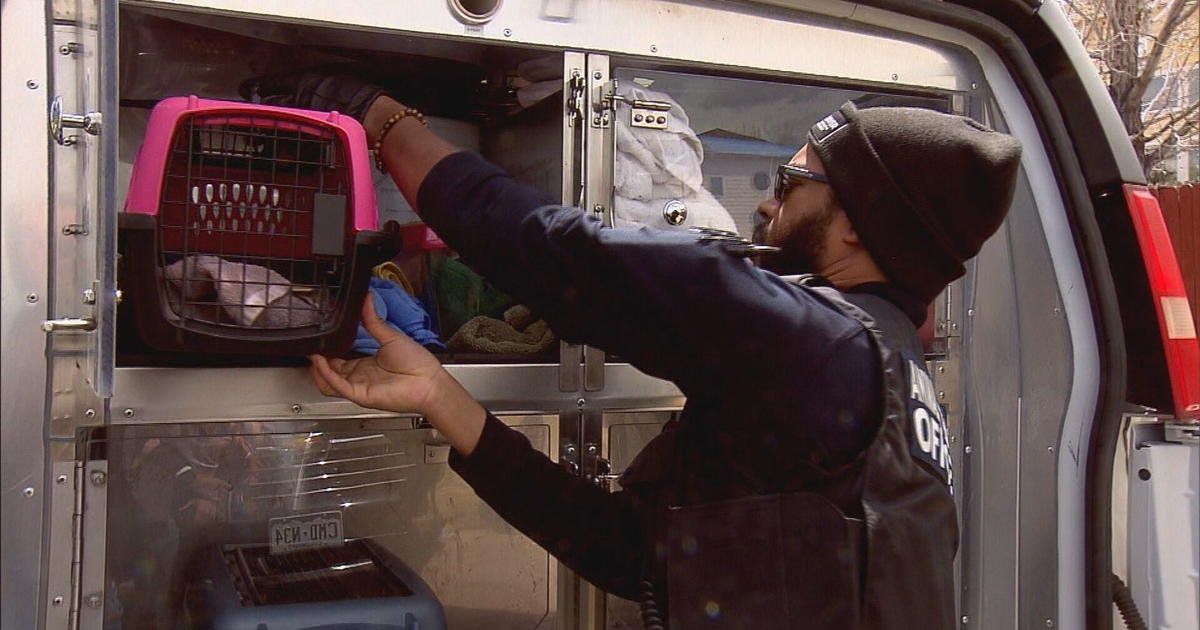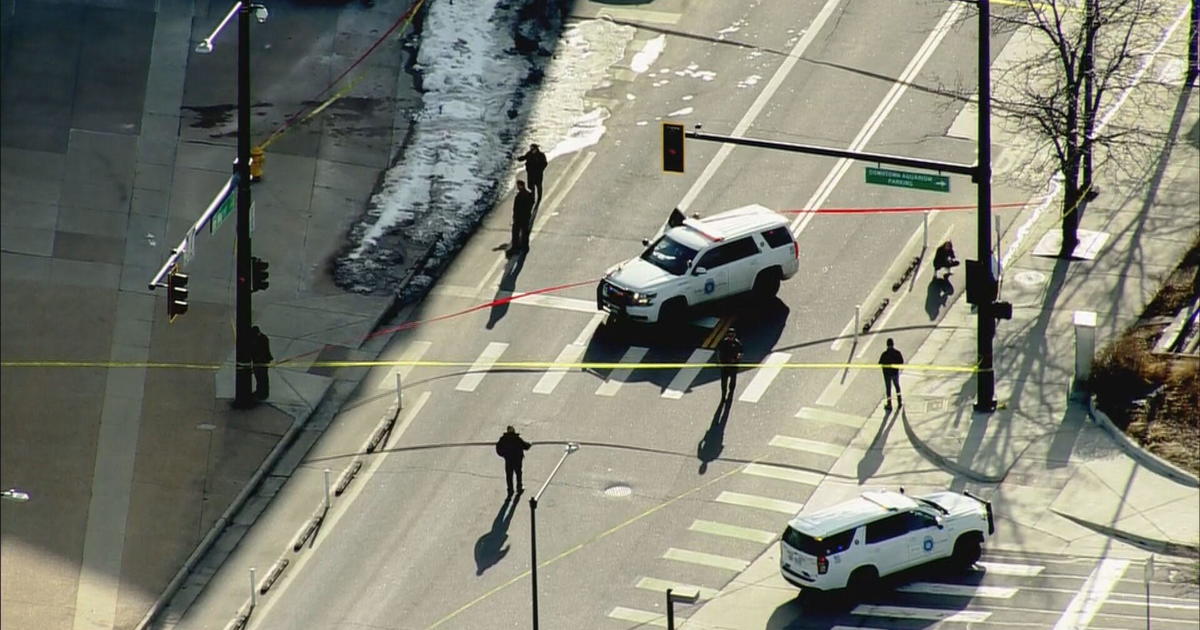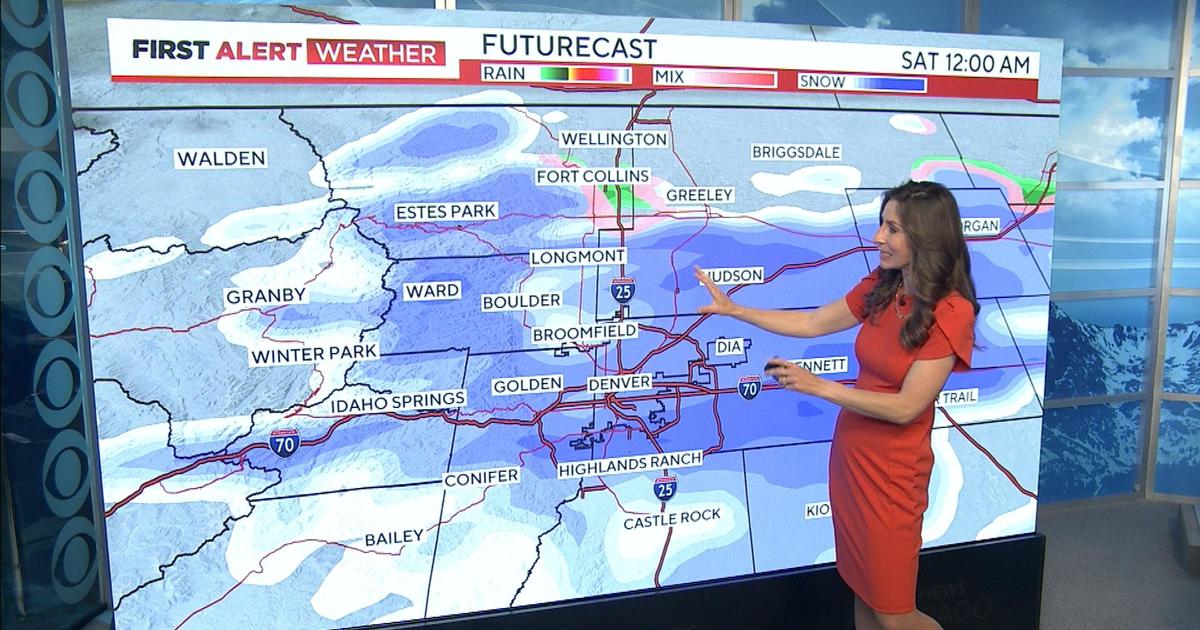EPA Moves To Reclassify Front Range As 'Severe' Violator Of Air Quality Standards
DENVER (CBS4) - Following years of failing to meet ozone standards, the Denver metro area is on the verge of having its Environmental Protection Agency air quality status downgraded from "serious" to "severe." The re-classification would have additional consequences for Coloradans.
"I'm really hopeful that people hear this downgrade and say, 'let's do something about it,'" said Aurora resident Steff Lebsack.
Living with a chronic lung disease, Lebsack checks the air quality before planning each day. As smoky, smoggy days are more frequent than years ago, so are the impacts to her health and treatment at National Jewish Health.
"This past summer I was hospitalized multiple times, so my medical team definitely thinks air quality played a factor," Lebsack said.
While Lebsack is always scrutinizing the air she breathes, so is the EPA. Now, the agency is proposing to downgrade the nine county Front Range from a "serious" to "severe" violator of ozone standards.
The agency makes its classifications based on monitoring data collected between 2018 and 2020. The standards used by the EPA require an average of 75 parts per billion of ozone, which the Front Range surpassed in the three-year period with an average of 81 parts per billion.
"We can't control all of the ozone that comes into our state, but certainly Colorado is going to do everything we can within our control to improve our air quality," said Jill Hunsaker Ryan, Executive Director of the Colorado Department of Public Health and Environment (CDPHE).
If approved, cleaner burning and more expensive reformulated gas would be required a year after reclassification. Currently, the blend costs more than forty cents more per gallon.
The reclassification would also mean new permitting requirements for close to 500 facilities in the metro area. According to Michael Ogletree, director of Colorado's Air Pollution Control Division, that would require some businesses to cut emissions of volatile organic compounds (VOCs) and other pollutants from 50 tons per year to 25 tons per year.
"More inspectors and more enforcement people," Ogletree said. "I think it is an opportunity for us to have additional resources to better oversee the regulation in approving air quality."
The reclassification comes as Gov. Jared Polis has called for investments in the budget to improve air quality, including hiring dozens of air monitoring employees, purchasing more monitoring equipment, electrifying school buses, and making transit fares free during ozone season. Hunsaker Ryan said the administration has already implemented other measures, which should address the issue as well.
"These laws and rules take time to implement, and implementation doesn't happen overnight, so that means the state simply hasn't seen the full benefit of many of these actions yet," Hunsaker Ryan said. "We will be seeing the benefits of these in the years to come, coupled with the additional resources that the division is getting to be able to do even more stringent regulation."
There are five other areas in the U.S. that could be downgraded to this classification of "severe" offender. The process now includes a 60-day public comment period, and a decision could be made several months after that.
